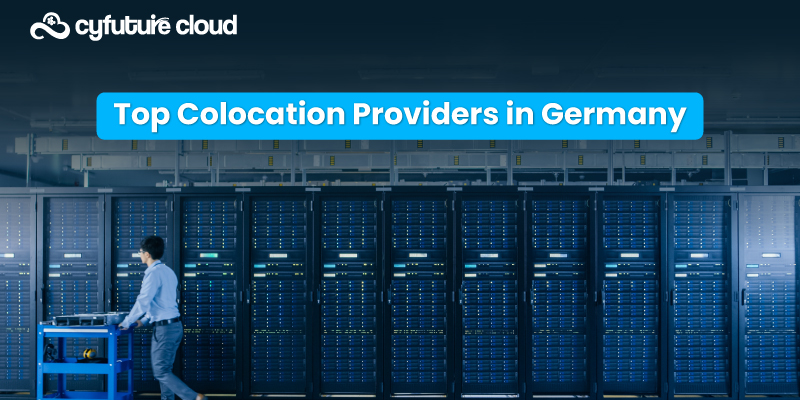Table of Contents
Are you aware that in the current technological era, firms who use DevOps principles deploy software on average 63 times more frequently than those who don’t? A software development methodology called DevOps strives to improve teamwork and communication between the development and operations teams in order to hasten software delivery while maintaining quality. However, hybrid cloud environments mix both private and public clouds, allowing companies to benefit from both models’ advantages while spending less money. Given that DevOps can have a big impact on software development, delivery, and deployment, managing it in a hybrid cloud environment is essential. The significance of managing DevOps in a hybrid cloud environment will be covered in detail in this article, along with some best practices for streamlining the procedure. So let’s get going!
Acquiring Knowledge of Hybrid Cloud Environments
Let’s first define hybrid cloud environments and discuss their benefits and drawbacks before moving on to managing DevOps in a hybrid cloud context.
A hybrid cloud environment is made up of two or more cloud environments that work together as a single unit, such as private and public clouds. By enabling enterprises to shift workloads and data between various cloud environments, it gives them more flexibility and scalability. Simply put, hybrid cloud systems offer the benefits of both worlds: the flexibility and cost-effectiveness of a public cloud along with the protection and control of a private cloud.
Let’s now investigate the benefits of hybrid cloud setups. First off, hybrid cloud systems give businesses more flexibility by letting them move workloads and data between various environments in accordance with their needs. They also offer improved security because companies can store key workloads and data in private clouds while using public clouds for less-sensitive jobs. Finally, hybrid cloud systems provide cost effectiveness by enabling enterprises to employ private clouds for jobs requiring high security requirements and public clouds for tasks requiring less sensitivity.
Hybrid cloud environments come with a number of benefits, but they also present certain difficulties. First, companies using different cloud environments may experience problems integrating and managing their data. They might also have trouble maintaining uniform security requirements across all cloud environments. Finally, companies must make sure that their IT personnel are prepared and properly trained to manage hybrid cloud infrastructures.
Managing DevOps in a Hybrid Cloud Environment
Let’s explore managing DevOps in a hybrid cloud environment now that we are aware of its benefits and difficulties.
Changing one’s perspective from conventional software development techniques is necessary to implement DevOps approaches in a hybrid cloud environment. Continuous integration, continuous delivery, and continuous deployment are examples of DevOps approaches that help enterprises provide software more quickly while maintaining quality. Organizations in a hybrid cloud environment must make sure that their DevOps methods can be adjusted to various cloud environments while preserving consistency and dependability.
The management of DevOps in a hybrid cloud environment relies heavily on automation. Organizations can boost productivity, reduce errors, and streamline their software development processes through automation. Additionally, it guarantees that the product is extensively tested and easily deployed across various cloud settings. Ansible, Puppet, and Chef are a few automation solutions that can assist organizations in doing this.
A thorough understanding of the organization’s goals, IT setup, and cloud environment is necessary to develop a DevOps strategy that works for hybrid cloud settings. Businesses must make sure that their DevOps strategy fits with their corporate objectives and is scalable across various cloud environments. Businesses may monitor, track, and improve their software development processes with a well-designed DevOps strategy.
Individuals with a variety of skill sets, such as developers, operations engineers, and cloud architects, are needed to build a team that can manage DevOps in a hybrid cloud environment. To guarantee seamless software delivery and deployment, the team should be knowledgeable with DevOps principles and cloud technologies. They should also be able to work well together.
An organization’s ability to deliver and deploy software quickly can increase by 22% by adopting DevOps principles in a hybrid cloud environment, according to a recent research. The usage of hybrid cloud settings will likely continue to increase in the years to come, as the hybrid cloud industry is anticipated to reach $138 billion by 2025.
Managing DevOps in a Hybrid Cloud Environment: Best Practices
Following our discussion of the value of managing DevOps in a hybrid cloud environment as well as the benefits and drawbacks of such environments, let’s look at some best practices for managing DevOps in a hybrid cloud context.
Managing DevOps in a hybrid cloud environment requires placing a strong emphasis on communication and cooperation. To maintain the efficient operation of software development processes, it is crucial to ensure excellent communication and coordination across the many teams working across various cloud platforms. Teams can maintain communication by using apps like Slack, Microsoft Teams, or Zoom.
Managing DevOps in a hybrid cloud context also requires ensuring consistency across several cloud platforms. To prevent conflicts and mistakes, DevOps teams must make sure that their software development methods are the same across various cloud platforms. To do this, enterprises can manage containerized apps across several cloud platforms by using tools like Kubernetes.
Managing DevOps in a hybrid cloud environment requires leveraging cloud-native tools and technologies. The characteristics that cloud-native technologies like Amazon Web Services (AWS), Microsoft Azure, and Google Cloud Platform (GCP) offer are suitable for DevOps operations, such as auto-scaling, load balancing, and data management. These solutions are created expressly to work in cloud environments.
In a hybrid cloud environment, monitoring and enhancing the performance of DevOps operations is essential. It enables businesses to recognize problems and take action before they become serious ones. Organizations may analyze and improve their software development processes across many cloud platforms with the use of tools like Prometheus and Grafana.
By putting these best practices into practice, businesses can get the most out of DevOps in a hybrid cloud environment. A recent poll found that 67% of firms are witnessing improvements in software delivery and deployment time, and 75% of organizations have deployed DevOps methods in a hybrid cloud environment.
Challenges Managing DevOps in a Hybrid Cloud Environment
Although operating DevOps in a hybrid cloud environment has numerous benefits, there are also a number of difficulties that businesses must overcome in order to accomplish effective software development processes.
Managing DevOps in a hybrid cloud environment presents a number of difficult hurdles, including security and compliance issues. Data and apps must be secure and compliant across all cloud platforms because different cloud platforms may have different security protocols and compliance requirements. In hybrid cloud settings, security is viewed as a serious challenge by 43% of firms, per a recent poll.
Managing DevOps in a hybrid cloud environment presents additional challenges related to integration and compatibility. It becomes difficult to integrate and guarantee compatibility between various cloud platforms because they may have distinct architectures and technologies. A recent poll found that 39% of businesses consider integration and compatibility to be a major barrier in hybrid cloud setups.
Another difficulty in managing DevOps in a hybrid cloud environment is dealing with different cloud providers and vendors. As businesses engage with more cloud suppliers and service providers, it gets harder to manage them all efficiently and make sure they all function properly. A recent poll found that 29% of firms view managing many cloud suppliers and providers as a major difficulty in hybrid cloud setups.
Managing DevOps in a hybrid cloud environment can also be difficult due to limited visibility and control. It is difficult to acquire a comprehensive understanding of the complete software development process because different cloud platforms could have distinct management interfaces. This may result in a lack of control over the software development process and make it challenging to find and fix problems.
Organizations must implement efficient tactics that can assist them in managing their DevOps operations in a hybrid cloud environment in order to get beyond these obstacles. Implementing stringent security procedures and compliance controls, utilizing automation technologies to integrate and guarantee interoperability between various cloud platforms, and utilizing a central management interface to obtain a comprehensive understanding of the entire software development process are some solutions.
Conclusion
Managing DevOps in a hybrid cloud environment has become more important for enterprises to remain competitive in today’s fast-paced business environment. Organizations can gain quicker software delivery, better collaboration, and scalability by combining the advantages of on-premises and cloud infrastructures.
Organizations must adopt best practices like putting an emphasis on communication and collaboration, ensuring consistency across multiple cloud platforms, utilizing cloud-native tools and technologies, and monitoring and optimizing the performance of DevOps processes if they want to manage DevOps in a hybrid cloud environment.
The increased use of DevOps as a service, the use of artificial intelligence and machine learning to automate DevOps processes, and the incorporation of security and compliance measures into the DevOps process are some future trends and developments to keep an eye on when managing DevOps in a hybrid cloud environment.
In conclusion, for enterprises to prosper in the modern digital age, managing DevOps in a hybrid cloud environment is crucial. Organizations can guarantee that their DevOps processes are effective, scalable, and safe by implementing best practices and remaining current with evolving developments, providing them a competitive edge in the industry.
Recent Post
Send this to a friend

 Server
Colocation
Server
Colocation CDN
Network
CDN
Network Linux
Cloud Hosting
Linux
Cloud Hosting Kubernetes
Kubernetes Pricing
Calculator
Pricing
Calculator
 Power
Power
 Utilities
Utilities VMware
Private Cloud
VMware
Private Cloud VMware
on AWS
VMware
on AWS VMware
on Azure
VMware
on Azure Service
Level Agreement
Service
Level Agreement 



















